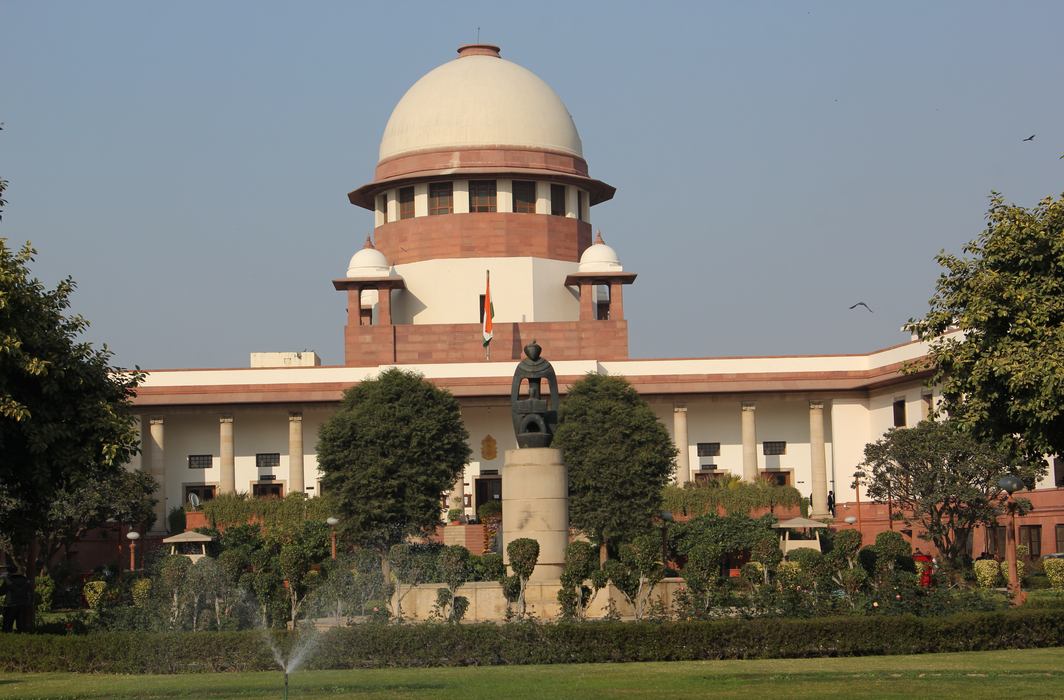The Supreme Court on Tuesday issued notice on transfer petitions seeking transfer of all pending petitions before various High Courts challenging the constitutional validity of Section 2(c) of the National Commission for Minorities Act, 1992 declaring five communities, Muslims, Christians, Sikhs, Buddhists and Parsis, as minorities.
A three-judge bench of Chief Justice S.A. Bobde, Justices A.S. Bopanna and V. Ramasubramanian issued the notice.
The petition is filed by Advocate Ashwini Kumar Upadhyay states that by using the unbridled power under Section 2(c) of the Act, Central Government declared Muslims, Christians, Sikhs, Buddhists, Jains and Zoroastrians as ‘minority’, but did not declare the followers of Bahaism, who are merely 0.1% and Judaism, who are just 0.2% as a religious minority, “which is arbitrary unjustified and abdication of the statutory powers of the Centre Government.”
The petitioner has further submitted that
“amongst the questions which were formulated for answer by eleven judges Bench in TMA Pai Case [2002 (8) SCC 481] the most important was, What is the meaning and content of the expression ‘minority’ in Article 30 of the Constitution of India? The answer in the opinion of the majority in the Constitution Bench is thus: “Linguistic and religious minorities are covered by expression ‘minority’ under Article 30 of the Constitution. Since reorganization of the States has been on linguistic lines, therefore, for the purpose of determining the minority, the unit will be State and not whole India. Thus, religious and linguistic minorities, who have been put on a par in Article 30, have to be considered state wise”. Therefore, for the purpose of notifying community as ‘minority’, Centre is empowered to consider claim of a particular community for being notified as such under Section 2(c) and cannot shirk its statutory responsibility.”
Hence the petitioner has submitted that after TMA Pai Judgment, the legal position stands clarified that henceforth the unit for determining status of both linguistic and religious minorities would be ‘State’.
Further pointing out at the minority population of Hindus in Laddakh, Mizoram, Lakshdweep, Kashmir, Nagaland, Meghalaya, Arunachal Pradesh, Punjab and Manipur, the petitioner has submitted that “the minority rights of Hindus are being siphoned off illegally and arbitrarily to the majority population because neither Centre nor respective States have notified them as ‘minority’ under S.2(c) of the NCM Act. Hence, Hindus are being deprived of their basic rights and protections guaranteed under Articles 29-30.”
Since, similar petitions are pending before the High Court of Delhi, Meghalaya and Gauhati, the petitioner has urged the Court to transfer all the matters to the Supreme Court which can be dealt collectively avoiding multiplicity of proceedings.
The petitioner has also urged the Court to declare S.2(c) of the NCM and Notification dated 23.10.1993 invalid and ultra-virus.
The petitioner has further urged the Court to direct the Home Ministry to identify and notify the religious and linguistic minorities at State level in spirit of Articles 29-30 of the Constitution of India and the Judgment of the Supreme Court in TMA Pai Case.


